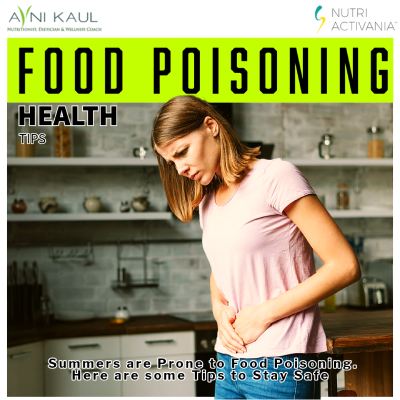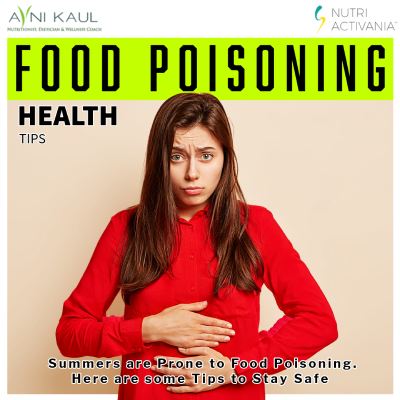It is a peak summer time in India, and food poisoning during this period is common. Leading Dietician for gastrointestinal health in Delhi, Avni Kaul, provides some insights on this topic of food poisoning during summer.
What is food poisoning?
Food poisoning encompasses most illnesses caused by consuming contaminated food. Common symptoms include nausea, fever, weakness, vomiting, and diarrhea. While food poisoning can be uncomfortable, it is often not serious, and most people recover within a few days without requiring medical treatment.
What causes food poisoning?
Food poisoning occurs when we consume spoiled or contaminated food, leading to various symptoms. Contamination is a natural process often caused by bacteria, viruses, or parasites. These pathogens make food unsafe to eat and can cause food poisoning when ingested. Poor hygiene during food preparation is a common cause of food contamination.
Are you more prone to it in summer?
Yes, we are more likely to consume contaminated food in the summer. The hot and often humid weather creates an ideal environment for pathogens to infest our food. Additionally, the increase in body temperature can slow down our digestive system, making us more susceptible to foodborne illnesses during the summer months.
How can you prevent food poisoning in summer?
Unlike other common summer illnesses, food poisoning can be entirely avoided by taking some preventive steps. Here are some simple measures to help you stay safe:
- Clean and Sanitize – Thoroughly wash all your food before consuming it, including meats, vegetables, fruits, and other washable items. You can also use food-safe sanitisers specifically designed for this purpose.
- Store Leftovers in the Fridge – One of the main causes of food poisoning is eating spoiled food. Leaving food out for long periods allows pathogens to multiply. Storing leftovers in the refrigerator prevents these organisms from growing.
- Wash Hands When Preparing and Eating Food – Our hands can easily transfer pathogens to our bodies. Regularly washing your hands and avoiding touching your face can help prevent infections.
- Avoid Food from Unhygienic Places – While indulging in street food occasionally might be tempting, it can pose health risks. Eating from unhygienic places increases your chances of getting food poisoning. Opt for food from establishments that maintain high hygiene standards.
- Cook Food Thoroughly – Undercooked food, especially meat, can harbour harmful bacteria and viruses. Ensure that your food is cooked completely to avoid the risk of foodborne illnesses.
- Regularly Clean the Kitchen – Keeping your kitchen clean is crucial. Daily cleaning prevents food scraps and poor hygiene from attracting pathogens, thereby reducing the risk of contamination. Maintaining a clean and hygienic environment is key to keeping foodborne pathogens at bay. Follow these preventive steps consistently to ensure a safe and healthy summer.



